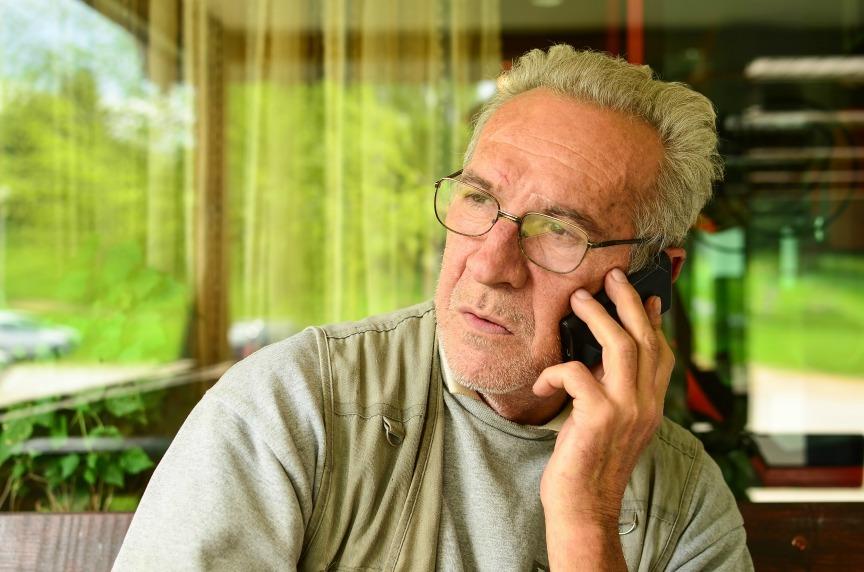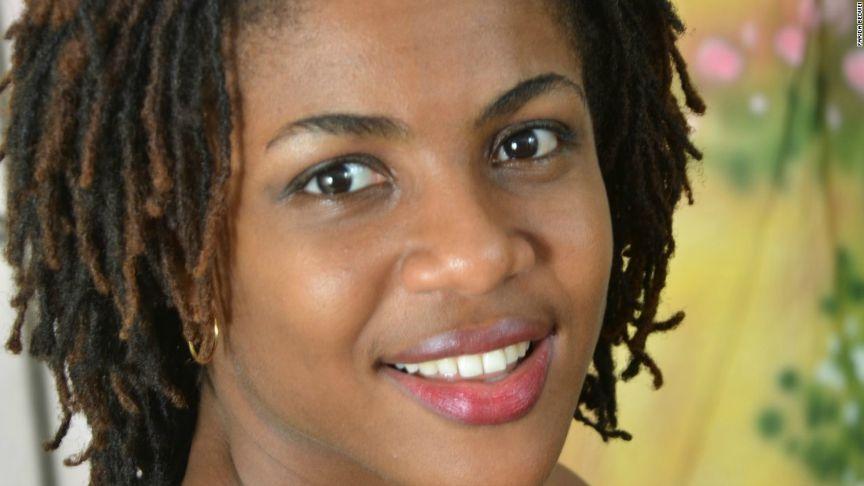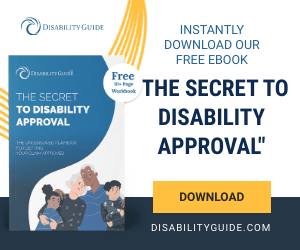News
Weekly News Round Up: Reddit Reveals What Living with a Disability is Like, The Health Risks of Snoring, Air Pollution May Shrink Your Brain

Contents [hide]
Here are some of the top health care and disability headlines for April 21-27.
A Powerful Reddit Thread Reveals What It’s Like to Have a Disability
Last Tuesday, a Reddit user posted a thread called “Disabled people of Reddit, what is something we do that we think helps, but it really doesn’t.” The thread received nearly 10,000 comments from people with a wide range of disabilities, all giving tips on how they would like to be treated, what not to do and other various annoyances they’ve encountered in day-to-day life. The Washington Post compiled 14 of the most common suggestions, from keeping health tips to yourself to not assuming all disabilities are visible. Read More
Is Your Snoring a Health Hazard? How to Find Out
Snoring – we all do it from time to time, but sometimes it’s more than just an occasional annoyance. One of the biggest concerns is obstructive sleep apnea, a condition in which blocked airways cause people to stop breathing multiple times each night. Sleep apnea not only disrupts sleep and oxygen levels, but could lead to high blood pressure, heart attack, stroke, obesity and diabetes. While most snorers do not have sleep apnea, it may be a good idea to talk to your doctor if your snoring is severely disrupting others or if you have unexplained daytime sleepiness. Read More
Air Pollution May Shrink the Brain, Study Suggests
Live in a highly-polluted area? Breathing that polluted air every day may be affecting your brain. Scientists recently examined 943 healthy adults ages 60+ who lived in the New England region. The researchers used MRIs to compare the participants’ brains to the places each one lived. Overall, they discovered that an increase of two micrograms per meter in fine-particle pollution was linked to .32 percent reduction in brain volume. According to experts, that amount of change is equivalent to about one year of brain aging.
News
Why Would You Need to Contact the SSA?

The Social Security Administration (SSA) delivers all kinds of services to the American people. Whether you’re in need of retirement, disability, or survivors’ benefits, the SSA is the place you should go to get them. But what specifically can contacting the SSA do for you?
Below is a list of just some of the reasons you might be interested in talking to the SSA:
- If you’ve applied for benefits, you might want an update on your claim.
- If you’re a beneficiary, you can request a benefit verification letter or ask for a SSA-1099 tax summary of your benefits.
- If you receive Medicare benefits, you can ask for a replacement Medicare card or an SSA-1020 for your taxes.
- Anyone can contact the SSA for the address of a local Social Security office, to apply for a Social Security card, or to ask any questions about the SSA or the benefits they offer.
So how do you actually contact the SSA? There are three preferred methods that the organization encourages: calling, emailing, and visiting a local office.
1. Call them—This is generally the method of contact the SSA encourages most. The organization does not publish the phone numbers of its local offices, but you can reach their Maryland office by calling 1-800-325-0778 between 7:00 a.m. and 7:00 p.m. Monday through Friday. You can also reach their automated phone service 24×7 at 1-800-772-1213.
2. Email them—You can email the SSA’s support staff at any time from this page on the website. Be advised that you should never include your Social Security number in any emails you send the SSA. This is to protect your privacy.
3. Walk into a local office—Although the main SSA office is located in Baltimore, Maryland, the organization has local offices in every state across the U.S. If you prefer face-to-face interactions over talking on the phone, visit the SSA’s office locator page. All you need is your zip code to find the nearest SSA office.
For more answers to common questions about the SSA, visit their FAQ page at faq.ssa.gov.
News
Weekly News Roundup: Social Security Benefits Now Available to Married Gay Couples, New Tableware Made Specifically for People with Dementia, Music Has Positive Influence on Exercise

Here are some of the top healthcare and disability headlines for August 18–24
Gay Couples Are Eligible for Social Security Benefits, U.S. Decides
The Justice Department recently announced that same-sex married couples living in states that did not recognize their unions and who previously filed claims for Social Security benefits will now be able to collect payments. In the past, the Social Security Administration typically looked to the states to determine marital status. The ruling is expected to be enacted going forward, and will be applied to previously filed claims that were pending or in the litigation process. Read More
Inspired By Her Grandmother, This Designer is Making Custom Tableware to Improve the Lives of Dementia Patients
It comes as a surprise to some people that dementia comes with more than just cognitive impairments. Many have accompanying physical challenges as well, which can make simple tasks like eating difficult. After industrial designer Sha Yao’s grandmother was diagnosed with Alzheimer’s disease, Yao was determined to make life a little easier for those living with dementia and created a tableware set called Eatwell that accommodates dementia patients’ physical limitations while eating.
Here’s How Music Influences Your Workout, According to Science
Do you listen to music while exercising? Well good news! Turning up the beats actually benefits your workout by acting as a natural pain reliever and helping you move faster without even realizing it. Listening to music while exercising releases dopamine and opioids, which helps boost your mood, dulls pain, and makes you feel less tired. Plus the brain’s neurons can synchronize with the tempo of music, which helps when it comes to repetitive motions such as running. Read More
News
Finding Her Own Way: Ghana Woman with Cerebral Palsy Makes Groundbreaking New Software

Farida Bedwei of Ghana is proof that disability doesn’t mean disadvantage. At the young age of one, she was diagnosed with cerebral palsy, a neurological disorder that affects body movement and muscle coordination. But today she’s become not only a beacon of hope in her country, but also a successful software engineer and influential businesswoman in her own right.
Bedwei decided early on in life that she was not going to let her disability define her. Instead she decided to pursue her education, and despite her many physical challenges, she had a sharp mind that craved education. Bedwei was homeschooled until the age of 12 then pursued further education at a government school where she could socialize with other children. Her family noticed her passion for computers, so her successors advised Bedwei to skip her senior year of high school and enroll in a one-year computer course at the St. Michael information technology center. At 15 years old she was one of the youngest students in her class.
From there Bedwei fought for her dream job at a software company called Soft. She went to the head of the technical division and said, “I want a job here. I don’t have experience, but I am inspired to learn . . . If you give me a chance, I promise you won’t regret it.” They liked Bedwei and offered her a spot on their team.
Three years into that job Bedwei was on the move to gain more experience. She ended up at Rancard Solutions as a senior software architect and worked there for nine years. She even managed to get another diploma in e-technology. But what Bedwei really wanted a degree. She decided to go to the University of Hertfordshire in England for one year to study computer science since she believed that’s where the technology market was heading.
And she was right. Today Bedwei is the co-founder and chief technical officer of the software company Logiciel and was named South Africa’s most influential woman in business in 2013. Her biggest accomplishment so far is the development of a cloud software platform for micro-finance. Basically this program helps companies administer loans to their customers by sending a code to their mobile phones. The program has helped give loans to people who need them and also protect them from fraud in the process. Now more than 130 micro-finance companies nationwide are using Bedwei’s program.
Speaking of her experiences, Bedwei says, “I am a role model for a lot of children with disabilities and it’s very important for me to showcase to the world that . . . yes . . .you can have a disabled child and it’s not the end of the world. There is so much that child can end up doing given the right resources.” A beautiful reminder to those who think they are limited, Bedwei is proof that anything is possible.
-

 About SSI & SSDI10 years ago
About SSI & SSDI10 years ago6 Different Types of Service Animals
-

 Getting Approved10 years ago
Getting Approved10 years agoWill Medical Marijuana Affect My Social Security Disability Case?
-

 About SSI & SSDI10 years ago
About SSI & SSDI10 years agoHow the Social Security Blue Book of Impairments Can Affect Your Disability Claim
-

 About SSI & SSDI9 years ago
About SSI & SSDI9 years agoSSDI or SSI: What Makes These Programs Different?
-

 Getting Approved10 years ago
Getting Approved10 years agoQuick Tip: List Your Attorney as a Contact for the SSA
-

 News9 years ago
News9 years agoWhy Would You Need to Contact the SSA?
-

 Getting Approved10 years ago
Getting Approved10 years agoCan Social Media Activity Affect My Disability Case?
-

 Getting Approved10 years ago
Getting Approved10 years ago10 Ways to Keep Your Mind Sharp



